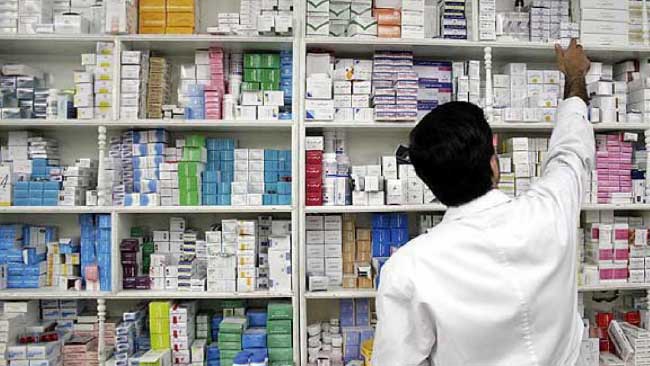The availability of quality pharmaceutical products is critical to promoting and maintaining public health. This is particularly important in impoverished, insecure, countries, such as Afghanistan, where there is heightened vulnerability to disease and other sources of morbidity/mortality. Unfortunately, increased demand for pharmaceutical products and significant financial incentives for engaging in illicit importation have led to a dramatic increase in the importation of poor quality medicine. According to reports, about 90% of Afghanistan’s pharmaceutical products are imported while 50% of them are illegally imported. It is estimated that the combined value of both illegal and legal pharmaceuticals in Afghanistan is USD 700-880 million.
While the rules and regulations that govern pharmaceutical imports in Afghanistan need to be significantly revised, there are procedures that, if followed, could mitigate the importation of poor quality pharmaceuticals. However, as with many rules and regulations in Afghanistan, they are easily circumvented through corruption.
In other words, the entire medicine importation process is highly vulnerable to corruption, from registration of pharmaceutical companies, to pro forma registration, to laboratory-based quality control. Enormous financial incentives to engage in illicit importation of pharmaceuticals has led to an increase in smuggling, as well as the creation of an entire industry dedicated to producing and importing low quality pharmaceuticals into Afghanistan. For example, it is estimated that up to 70% of pharmaceuticals imported into Afghanistan are produced in neighboring countries, specifically for the Afghanistan market. It is widely believed that the dramatic increase in the number of pharmaceutical companies in certain neighboring countries is due to the ease with which low quality medicines can be produced and imported with relatively little oversight or quality control. Enormous profits can be made as a result, particularly since the producing companies do not even need to meet their local quality control standards as long as the pharmaceuticals are produced for export to Afghanistan only. Currently, there are around 500 foreign pharmaceutical suppliers registered with the MoPH. It is estimated that 250-300 of these companies are producing exclusively for the Afghanistan market. Many of them are not allowed to sell their products in their own market, but are allowed to export their products to Afghanistan. This raises serious concerns over Afghanistan’s importation standards, even relative to the region.
However, The Pharmaceutical Law deals with selection, production, importation, distribution and consumption of pharmaceutical products in the country. But It was enacted at a time when there was significant need for pharmaceutical products in Afghanistan, which the law addressed by over-simplifying much of the importation process. Given the dramatic increase in the volume of low quality pharmaceutical imports, this law is need of substantial revision. Aside from the highly permissive environment the Pharmaceutical Law provides importers, it is deficient in addressing conflict of interest issues that are easily exploited by government staff. It is said that many MoPH staff members have direct or indirect business relationships with pharmaceutical companies.
The Licensed National Pharmaceutical List determines which products can be imported, produced, and distributed. The list is needed to be updated every year, but it has not been updated for many years. Nevertheless, the National Pharmaceutical Board continues to approve importation/production of additional 50-60 items per year. Interviewees stated that this is a significant corruption opportunity as MoPH staff can simply ask for bribes for anything that is not on the list.
Corruptions also play a significant role in obtaining licenses and registrations, effectively undermining a number of quality control checkpoints. Among other things, these results in the transportation of pharmaceuticals that will exceed demand/necessity, flooding Afghanistan with medicines that will likely expire, but continue to be sold. It also ensures that many of companies that have produced the drugs will not have been evaluated for the quality of their products or followed proper storage and cold chain maintenance procedures before and during transport. During the summer, pharmaceutical are often transported through areas that reach 40 centigrade, ensuring the many medications will be spoiled, but sold to consumers anyway. In addition, pharmaceutical transport to and through Afghanistan is exposed to many of the same vulnerabilities found in Afghanistan’s notoriously corrupt border management system. Bribes can be used to override almost every step of the importation process, including quality control checkpoints at the border, importing pharmaceuticals beyond those listed on the pro forma sheet or even without the required pro-forma registration.
In brief, poor quality medicine and high prices in the market have created considerable challenges toward healthcare services in Afghanistan. In fact, it does not kill only the health of our people but also kills the economy of them. So, there is a serious need to limit the volume of low quality pharmaceutical products entering Afghanistan through a range of reforms to the registration and licensing process, retail price, as well as broader regulatory reforms. On the other hand, promoting technical surveillance and monitoring capacity is important to ensure that production and import companies are adequately vetted, and that pharmaceuticals entering the country are subjected to rigorous quality control. Also Afghan Government must be notified that we are signatory to numerous human rights treaties and having fundamental duty to respect, protect and fulfill the human rights of its citizens. This includes a right to enjoy the “highest attainable standards of physical and mental health” as outlined in Article 12 of the United Nations Convention on Economic and Social Rights (UNCESR). The duty of Afghanistan to minimize the effect of low quality pharmaceuticals on its citizens is further clarified by General Comment 14 of the UNESCR, which highlights the right to quality health related goods and services. Given the population’s heightened vulnerability to sources of mortality and morbidity, upholding these rights by minimizing the effect of corruption on the import of pharmaceuticals must be a priority for Afghanistan.
Home » Opinion » Low Quality Medicines
Low Quality Medicines
| Mohammad Zahir Akbari

